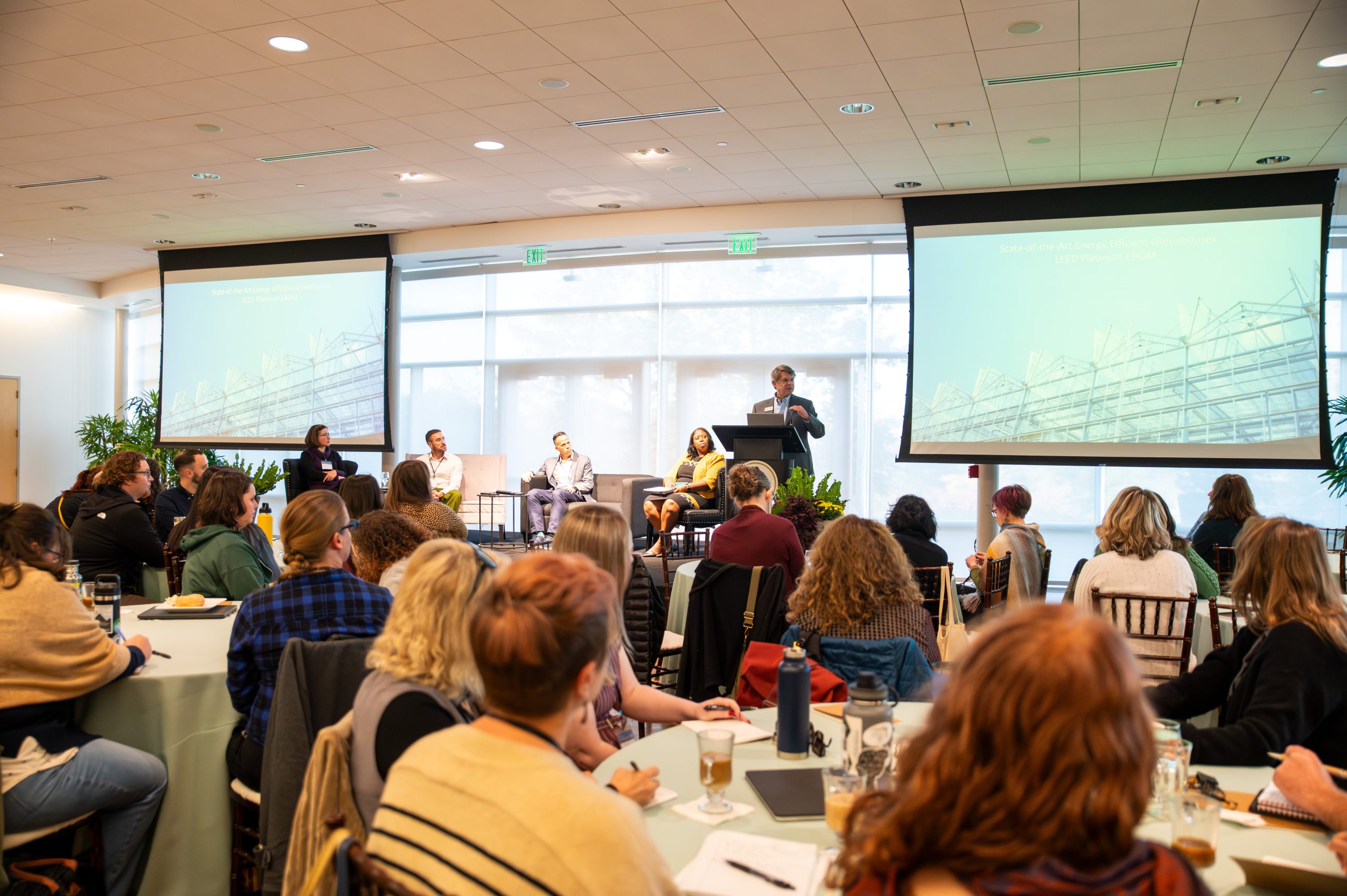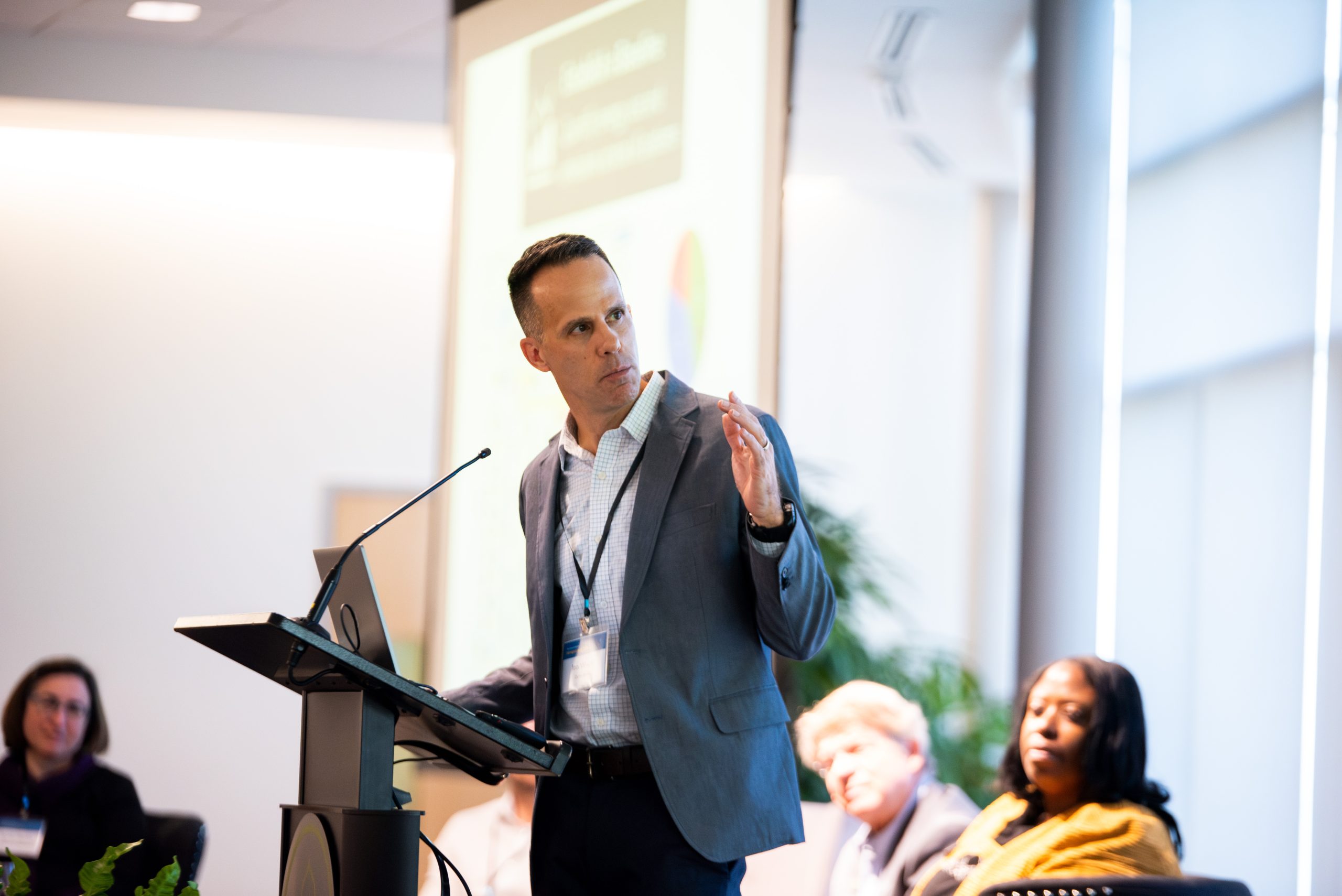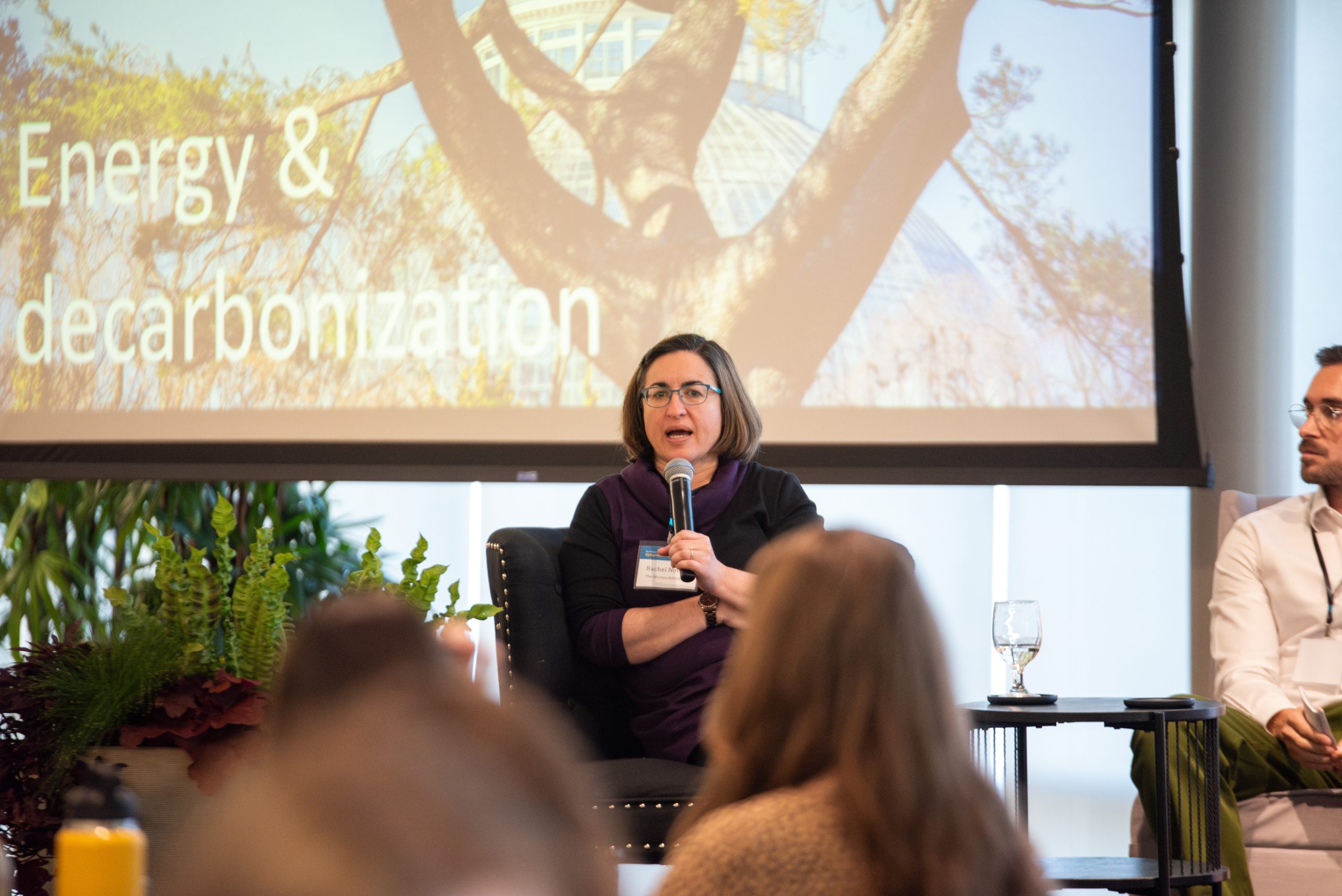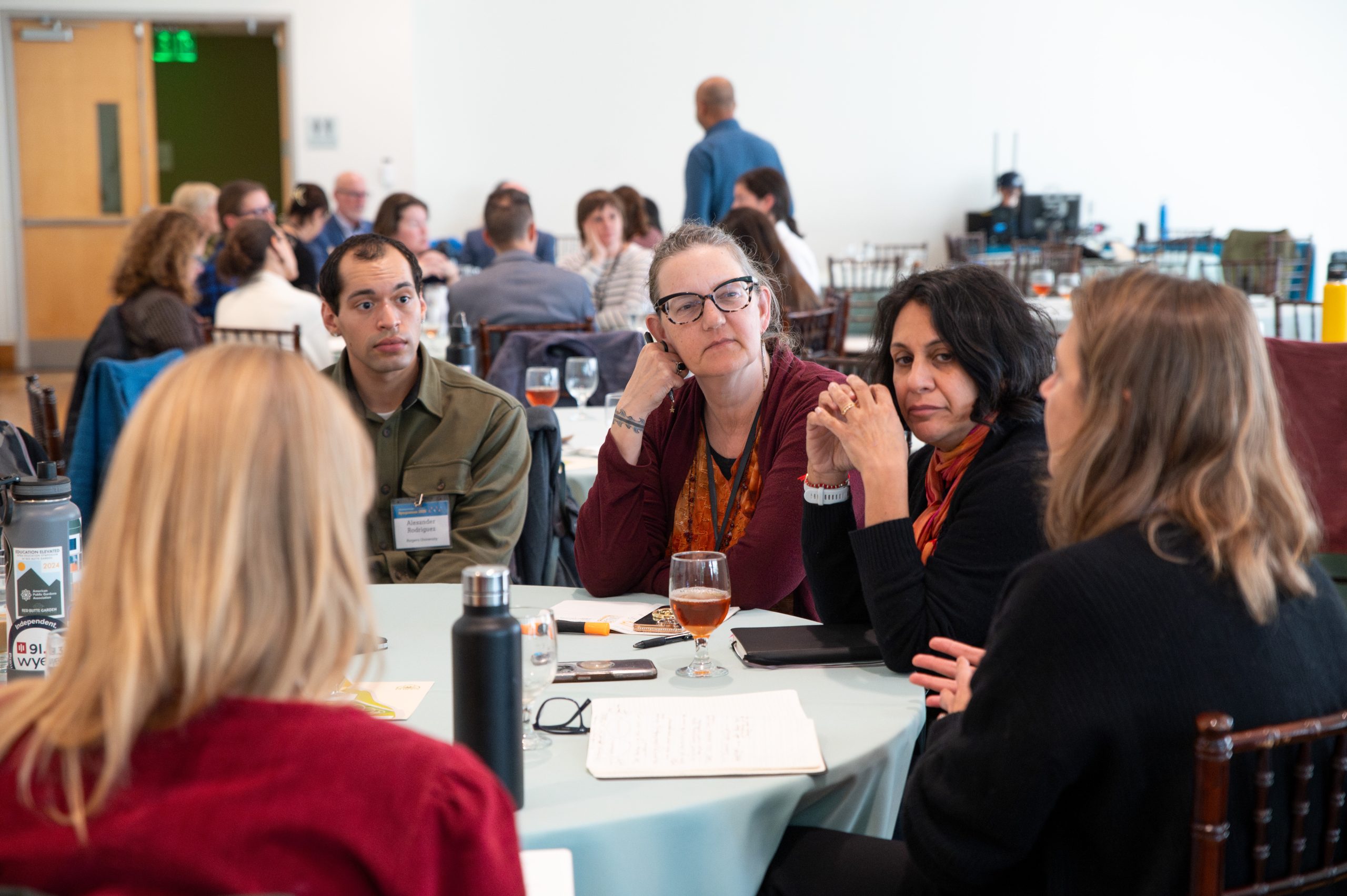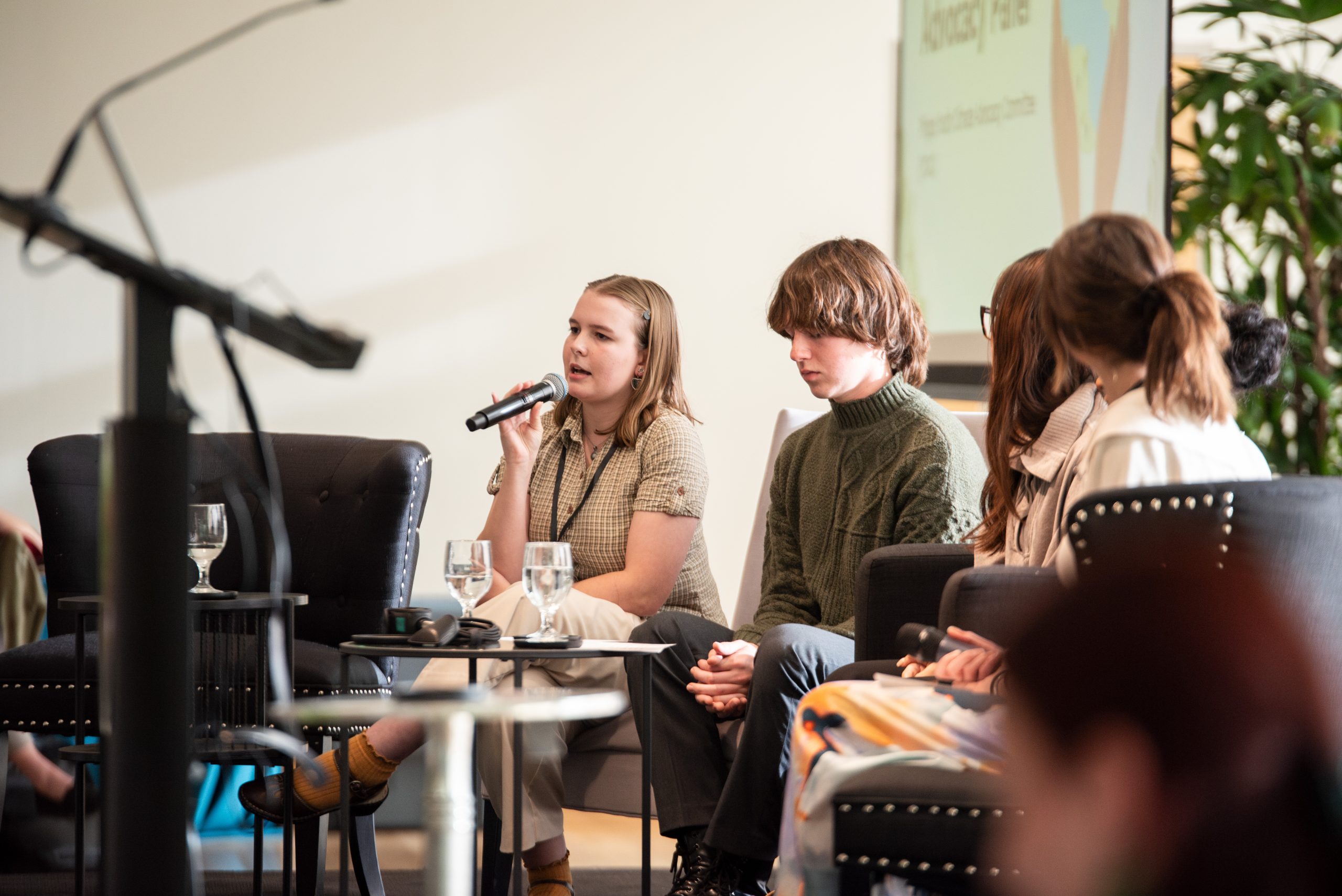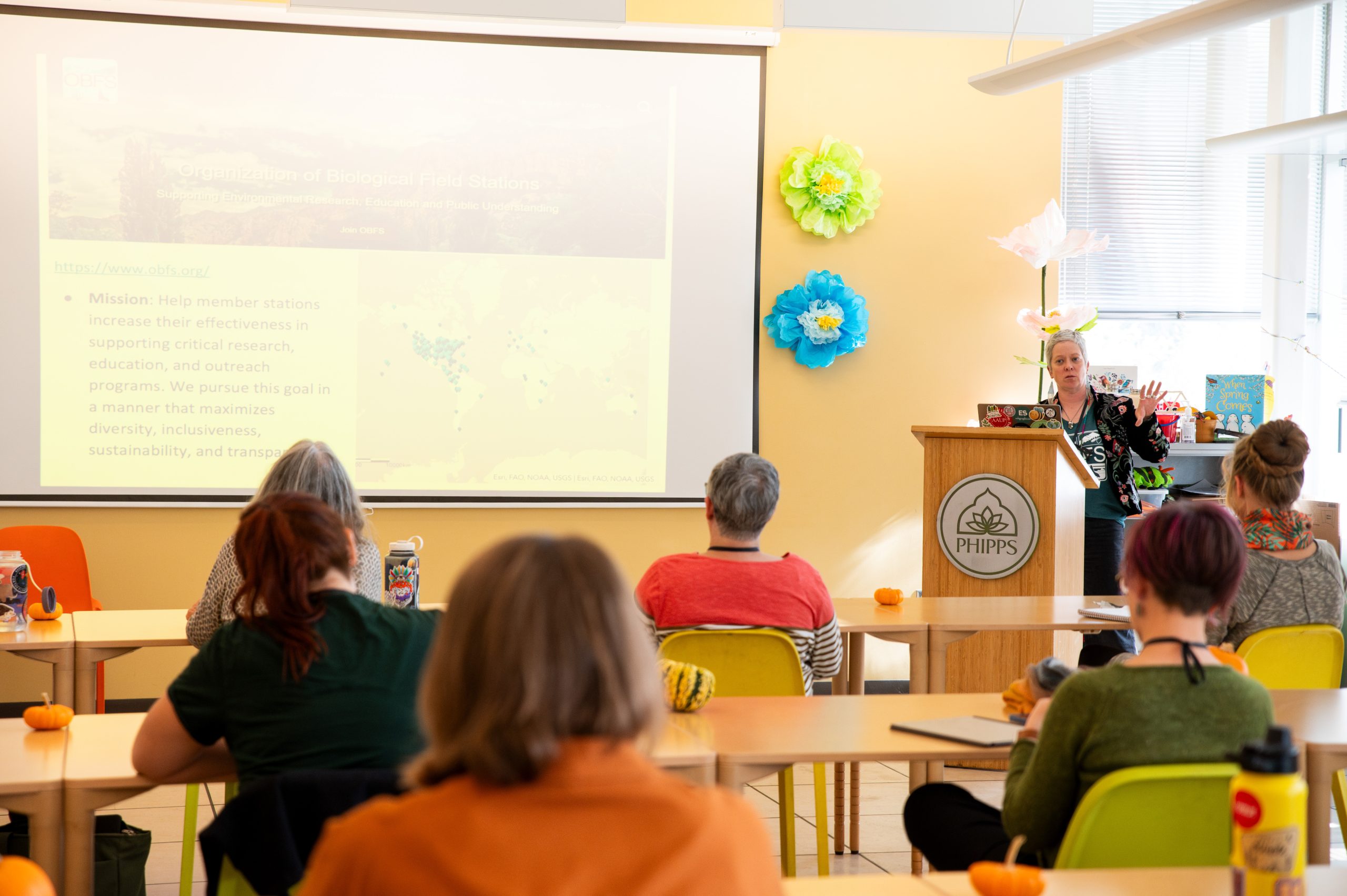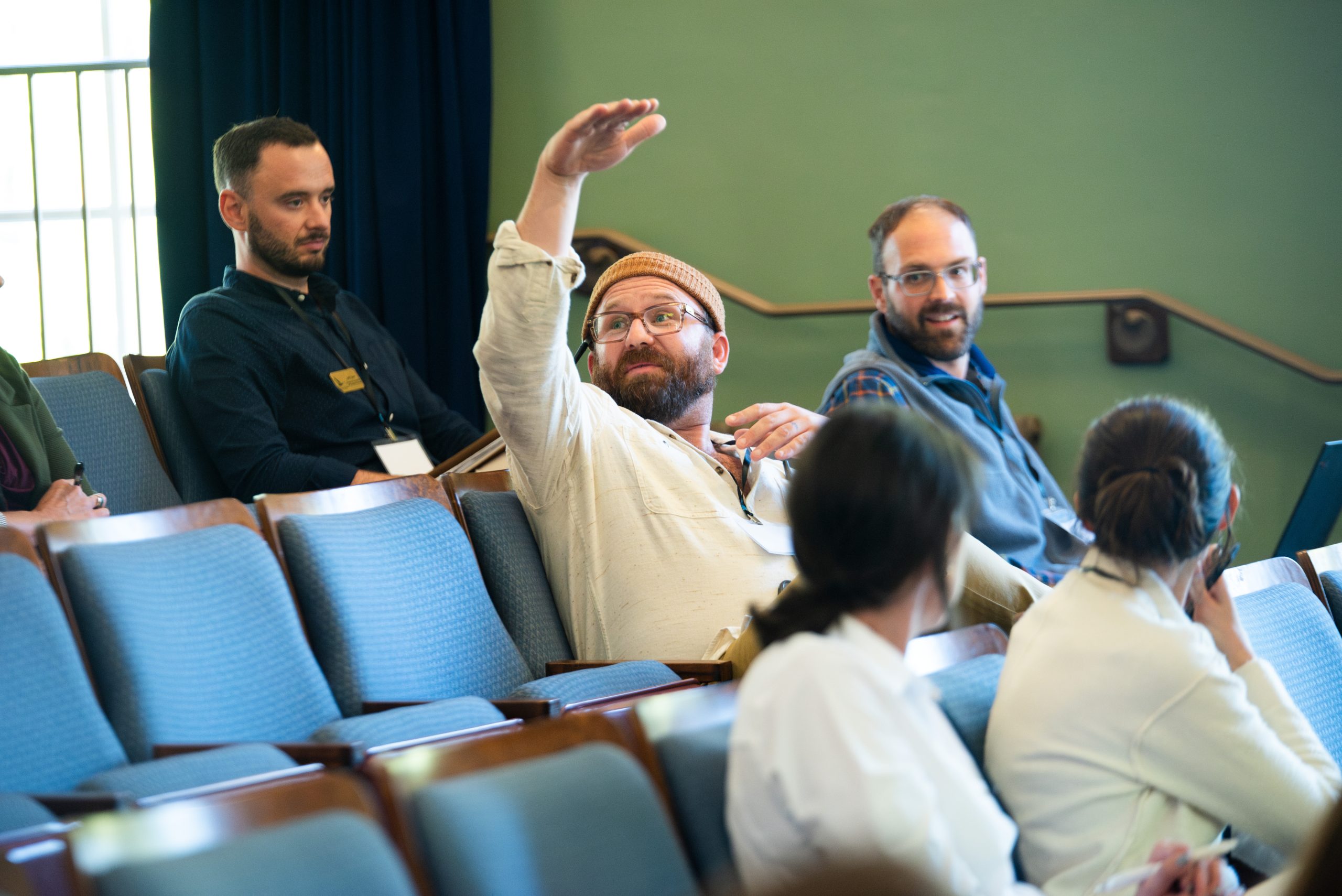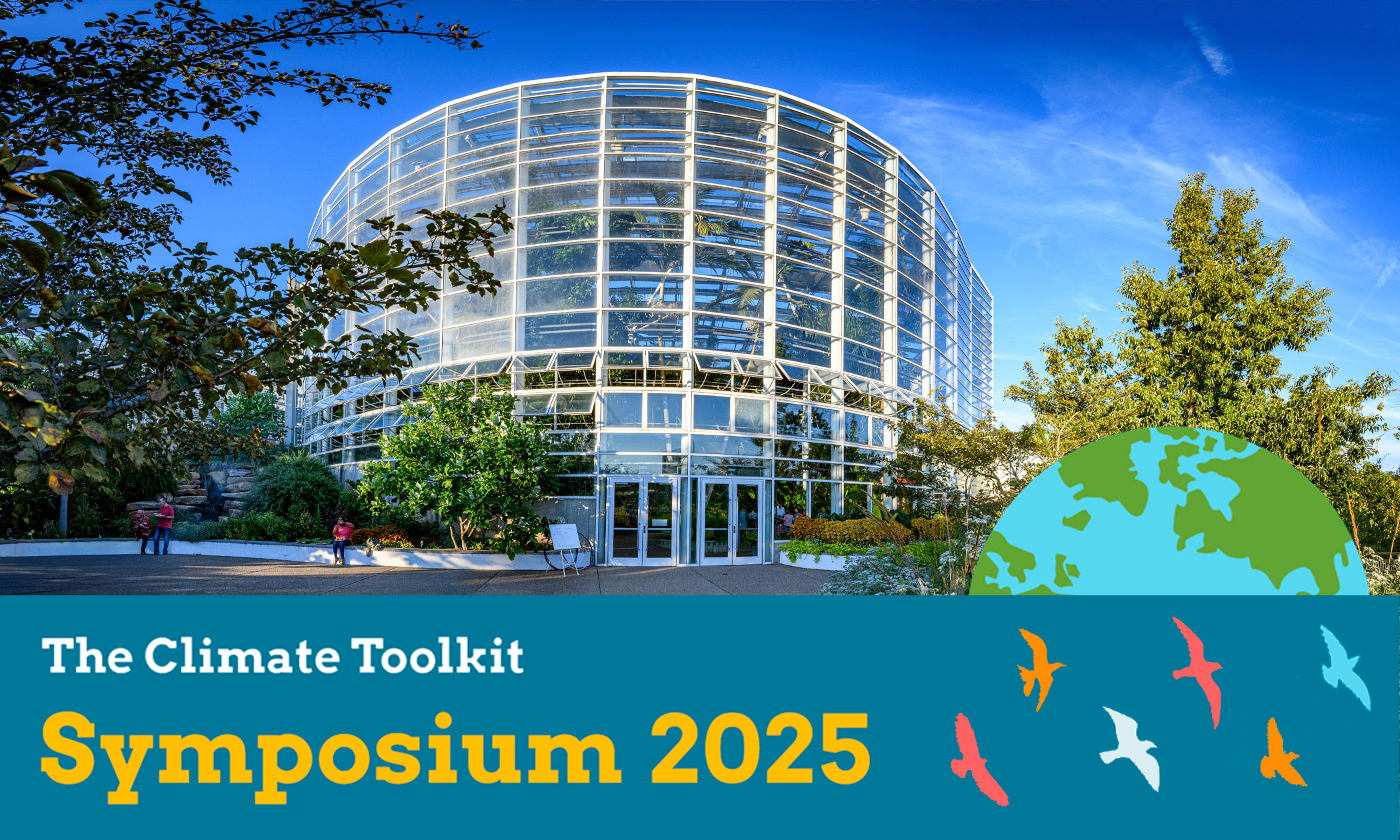
Climate Toolkit Symposium Resources
OCT. 26 - 28, 2025 | PHIPPS CONSERVATORY AND BOTANICAL GARDENS ; PITTSBURGH, PA
Thank you for helping to co-create our inaugural Climate Toolkit Symposium, presented by Phipps Conservatory and Duke Farms. What an incredible two and a half days of learning, collaboration, connection, and conversation. We were thrilled to be in-person with such an inspiring collective of cultural institutions and look forward to the work ahead.
How to Use This Resource
The Climate Toolkit Symposium was structured in three plenary sessions, five breakout discussions, a keynote address, and three climate action workshops, each with its own set of présentations. On this page, you’ll find each session represented by a video recording, presentation slide deck, and links to further resources and literature. Get started below!
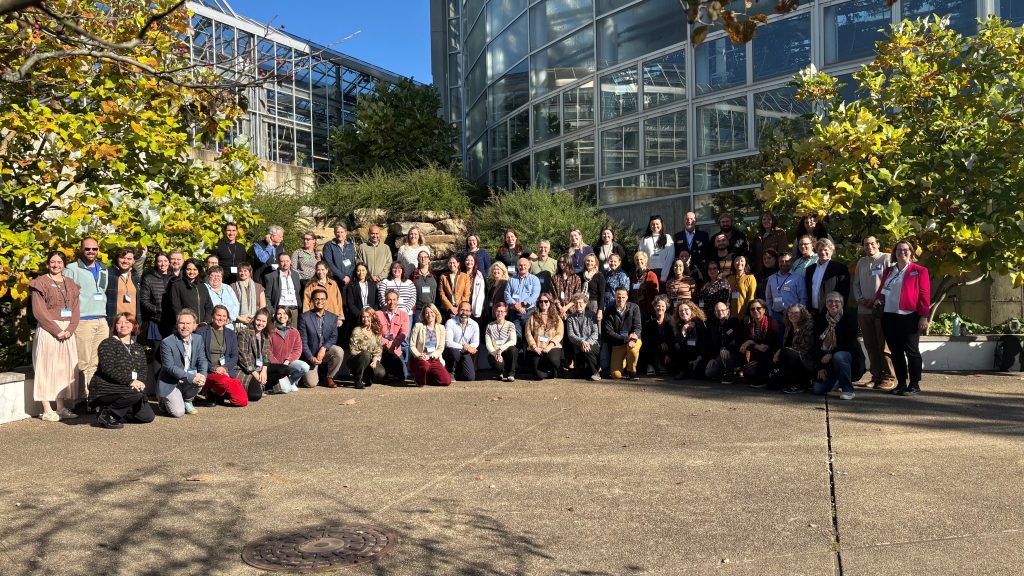
Plenary Session One: Energy and Decarbonization
Cultural institutions are stepping up as climate leaders by reducing carbon emissions and transitioning to renewable energy. In this panel, Richard Piacentini from Conservatoire Phipps, Jon Wagar from Fermes Duke, Rachel Novick from L'Arboretum de Morton, and Rafael de Carvalho from Jardin botanique de New York shared how they are implementing ambitious decarbonization strategies, offering lessons learned from real-world successes and challenges.
Video Recording:
Presentation Slides:
- Conservatoire Phipps – Richard Piacentini, President and CEO
- Fermes Duke – Jon Wagar, Deputy Executive Director of Operations and Sustainability
- L'Arboretum de Morton – Rachel Novick, Ph.D., Director of Sustainability
- Jardin botanique de New York – Rafael de Carvalho, Associate Vice President for Capital Projects
Plenary Session Two: Climate Interpretation & Engagement
How can institutions engage with the public on a changing climate? This panel presentation brought together Anais Reyes from Le musée du climat, Casey Mink from Musée d'histoire naturelle de l'Utah, Jen Kretser from Le Wild Center, and Mark Wourms from Forêt et arboretum de Bernheim to highlight creative approaches to interpretation and engagement that inspire audiences to participate in climate solutions.
Video Recording:
Presentation Slides:
- Le musée du climat – Anais Reyes, Curator
- Musée d'histoire naturelle de l'Utah – Casey Mink, Assistant Exhibits Developer
- Le Wild Center – Jen Kretser, Director of Climate Initiatives
- Forêt et arboretum de Bernheim – Mark Wourms, Ph.D., President, Chief Executive Officer
Domaines d'intervention en petits groupes I : Gestion des déchets et solutions basées sur la nature
Breakout tracks offered participants an opportunity for focused conversation on specific areas of climate action. Each session began with a short presentation from a subject expert, followed by a facilitated, round-table discussion to support knowledge sharing and problem-solving. Allie Tilson from the Aquarium national led a breakout room through engaging thought exercises on streamlining institutional waste practices; and Jeff Downing from Centre du Mont Cuba and Dr. Christy Rollinson from L'Arboretum de Morton led another breakout on utilizing our community platforms to accelerate nature-based solutions through native plant conservation, habitat restoration, and urban tree planting.
Gestion des déchets et engagement du personnel
Interview:
Presentation Slides:
- Aquarium national – Allison Tilson, Senior Manager of Sustainability and Conservation Operations
Solutions basées sur la nature
Video Recording:
Presentation Slides:
- Centre du Mont Cuba – Jeff Downing, Executive Director
- L'Arboretum de Morton – Christy Rollinson, Ph.D., Senior Scientist, Forest Ecology
Breakout Focus Areas II: Climate Research; Conservation and Action; Facilities Management
The second round of breakout focus areas featured three discussions: Dr. Chelsea Miller and Dr. Lara Roketenetz from the Station de recherche de l'Université d'Akron led a discussion on the intersection of education, community science and academic research; Dr. Shafkat Khan from Zoo et aquarium de Pittsburgh facilitated intimate round-table discussions on conservation and action beyond our campuses; and Jim Hanson and Joe Zalenko from Fermes Duke engaged facilities and sustainability staff on electrification equipment, operations software, and best practices for facilities management.
Conservation and Action
Video Recording:
Presentation Slides:
- Zoo et aquarium de Pittsburgh – Shafkat Khan, Ph.D., Director of Conservation
Autres ressources :
Recherche sur le climat
Interview:
Presentation Slides:
- Station de recherche de l'Université d'Akron – Chelsea Miller, Ph.D., Assistant Professor, Global Change Biology, and Lara Roketenetz, Ph.D., Field Station Director
Gestion des installations
Interview:
Presentation Slides:
- Fermes Duke – Jim Hanson, Manager of Sustainability and Technology, and Joe Zalenko, Facilities Manager
Plenary Session Three: Youth Climate Advocacy
Amplifying youth voices is critical to advancing the climate movement and driving action within communities. In this panel and Q&A session, we heard directly from Emma Ehan, Anwita Maneish Nithya, Cortlan Harrell, and Marley McFarland, leaders of Phipps’ Youth Climate Advocacy Committee, on how to battle climate anxiety while activating the next generation of young changemakers.
Video Recording:
Presentation Slides:
- Phipps’ Youth Climate Advocacy Committee – Phipps’ YCAC Team Leaders
Keynote Address: “Our Finest Hour: Looking Back from the Year 2276”
In this keynote address, David W. Orr, Professor Emeritus at Oberlin College, provided a sobering outlook on the current state of the intertwined political and climate crises while offering key perspectives on how we as a society can advocate for climate action during turbulent times.
Video Recording:
Presentation Slides:
- “Our Finest Hour: Looking Back from the Year 2276” – David W. Orr
L'essence comme boussole : Guider l'action climatique par une pensée régénératrice
This session, led by Richard Piacentini from Conservatoire Phipps and Sonja Bochart of LENS / Shepley Bulfinch, invited participants to explore the power of working from essence—connecting with the unique core of who they are and what truly matters. From this foundation, our actions become more regenerative, our strategies more aligned, and our potential for lasting impact more fully realized.
Interview:
Presentation Slides:
Resources and Worksheets:
Climate Action Resiliency Planning
This session, led by Stephanie Shapiro and Al Carver-Kubik of Partenaires de l'environnement et de la culture, engaged participants through institutional baseline climate and community assessments, implementation exercises, and prioritization frameworks to help form the basis of climate resiliency planning.
Interview:
Presentation Slides:
- Élaboration d'un plan de résilience pour l'action climatique – Stephanie Shapiro, Co-Founder & Managing Director, and Al Carver-Kubik, Program Officer, Grants & Research, Environment & Culture Partners
Resources and Worksheets:
Civic Engagement: Becoming Your Community’s Climate Resource
Our final climate action workshop of the symposium, led by Rose Hendricks of Réseau d'action pour l'ensemencement de l'ASTC, engaged participants to think deeply about strategies for civic engagement and community action to improve planetary health.
Interview:
Presentation Slides:
- Becoming Your Community’s Climate Resource – Rose Hendricks, Ph.D., Executive Director of Seeding Action
Resources and Worksheets:
- Becoming Your Community’s Climate Resource Worksheet
- ASTC’s Civic Engagement & Policymaking Toolkit
- Yale Program on Climate Change Communications Opinion Maps
- Potential Energy Coalition “Later is too late”: Global Data Explorer
Photography
Des questions ? Resources to share? Contact alampl@phipps.conservatory.org ou 412-622-6915, poste 6752
PRÉSENTÉ PAR


À propos de Phipps: Fondé en 1893, le Phipps Conservatory and Botanical Gardens à Pittsburgh, en Pennsylvanie, est un leader vert mondialement reconnu dont la mission est d'inspirer et d'éduquer à la beauté et à l'importance des plantes, de faire progresser le développement durable et de promouvoir le bien-être humain et environnemental par l'action et la recherche, et de célébrer sa serre historique. S'étendant sur 15 hectares et comprenant une serre historique de 14 pièces, 23 jardins intérieurs et extérieurs distincts et une architecture et des opérations durables à la pointe de l'industrie, Phipps attire chaque année plus d'un demi-million de visiteurs du monde entier. Pour en savoir plus phipps.conservatory.org.
À propos de Duke Farms : Duke Farms est un laboratoire vivant où nous développons des stratégies modèles pour la restauration de la nature, la conservation de la faune et de la flore et la transition vers une énergie propre. Situé sur 2 700 acres à Hillsborough, dans le New Jersey, notre campus est un lieu de rassemblement pour les décideurs mondiaux et les voisins locaux afin de susciter le changement. Duke Farms est un centre de la Doris Duke Foundation qui s'efforce de construire un avenir plus créatif, équitable et durable. Pour en savoir plus dukefarms.org.





